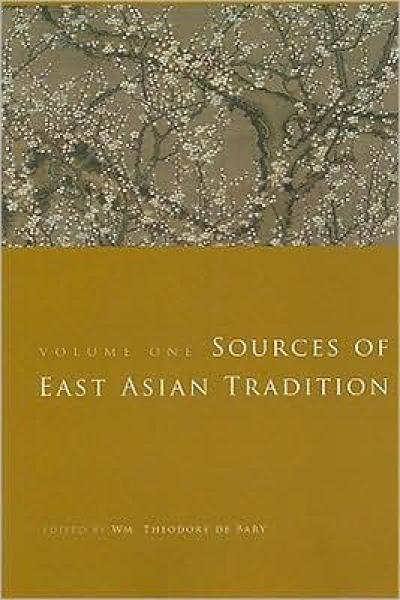Description
In Sources of East Asian Tradition, Wm. Theodore de Bary offers a selection of essential readings from his immensely popular anthologies Sources of Chinese Tradition, Sources of Korean Tradition, and Sources of Japanese Tradition so readers can experience a concise but no less comprehensive portrait of the social, intellectual, and religious traditions of East Asia. Volume 1 samples writings from the earliest times to 1600, illuminating life in early China and the first imperial age, as well as the profound impact of Daoism, Buddhism, the Confucian revival, and Neo-Confucianism; the origins of Korean culture and political structures, up through the Choson dynasty; and major developments in early and medieval Japan. De Bary maintains his trademark balance of source materials, including seminal readings in the areas of history, society, politics, education, philosophy, and religion, thereby continuing his own tradition of providing an exceptional resource for teachers, scholars, students, and the general reader.
Wm. Theodore de Bary (1919-2017) was John Mitchell Mason Professor Emeritus and provost emeritus of Columbia University. He wrote extensively on Confucianism in East Asia and was the coeditor of Sources of Chinese Tradition, Sources of Japanese Tradition, and Sources of Korean Tradition.
[Sources of Korean Tradition provides] a unique view of Korean history via the eyes and words of the participants and/or witnesses themselves. Official documents, letters, policies and personal opinions written by the people who helped make Korea, reveal the Korea that most outsiders would never know.--Korean Quarterly
Sources of Japanese Tradition has proved to be invaluable to the study of Japanese history and culture. Its publication is welcome news to teachers and students of Japanese civilization and all those who are interested in the origins of contemporary Japanese society and culture.--Akira Iriye, author of Cultural Internationalism and World Order
The selections are excellent, translations faithful and elegant, and introductions terse and to the point. If I were asked to recommend only one book for anyone who wishes to know something about Chinese culture, I would name, without a moment of hesitation, Sources of Chinese Tradition.--Ying-shih Yu, Princeton University
This title is recommended for academic libraries for their history and Asian collections.--Kay M. Stebbins "American Reference Books Annual "
Wm. Theodore de Bary (1919-2017) was John Mitchell Mason Professor Emeritus and provost emeritus of Columbia University. He wrote extensively on Confucianism in East Asia and was the coeditor of Sources of Chinese Tradition, Sources of Japanese Tradition, and Sources of Korean Tradition.
[Sources of Korean Tradition provides] a unique view of Korean history via the eyes and words of the participants and/or witnesses themselves. Official documents, letters, policies and personal opinions written by the people who helped make Korea, reveal the Korea that most outsiders would never know.--Korean Quarterly
Sources of Japanese Tradition has proved to be invaluable to the study of Japanese history and culture. Its publication is welcome news to teachers and students of Japanese civilization and all those who are interested in the origins of contemporary Japanese society and culture.--Akira Iriye, author of Cultural Internationalism and World Order
The selections are excellent, translations faithful and elegant, and introductions terse and to the point. If I were asked to recommend only one book for anyone who wishes to know something about Chinese culture, I would name, without a moment of hesitation, Sources of Chinese Tradition.--Ying-shih Yu, Princeton University
This title is recommended for academic libraries for their history and Asian collections.--Kay M. Stebbins "American Reference Books Annual "
Last updated on
Product Details
- Columbia University Press Brand
- Jun 1, 2008 Pub Date:
- 0231143052 ISBN-10:
- 9780231143059 ISBN-13:
- 909 Pages
- 9.21 in * 6.16 in * 1.71 in Dimensions:
- 3 lb Weight:




